EDmarket is pleased to award one of the two David McCurrach Distinguished Service Awards to Kathy Hurley, a legend in the educational publishing and technology world. Kathy is a former senior executive for numerous educational publishing and technology companies, including IBM and Pearson. Currently, she is a senior advisor to educational technology companies, education associations, and school superintendent networks. She also serves on the board of directors for several non-profit and for-profit organizations including EDmarket (her second time on the Board with the first time in the 1990s). After retiring from Pearson, she was selected as a Fellow of the Advanced Leadership Initiative (ALI) at Harvard University. Upon completion of the program, she co-founded a global nonprofit organization, Girls Thinking Global, which has since merged with the Women’s Education Project, where she serves on the board of directors.
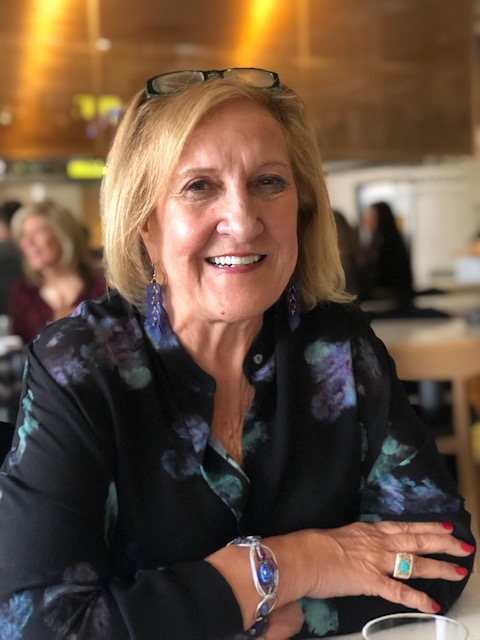
In 2004 she was inducted in the Association of Educational Publishers’ Hall of Fame and in 2019, she received the prestigious Lifetime Achievement Award in Education Technology from the Software & Information Industry Association (SIIA). In 2022, she received the 2022 Founders Award from the National Coalition for Technology in Education & Training (NCTET) and the inaugural Distinctive Mentor Award from the Education Research and Development Institute (ERDI). She is the co-editor, with Priscilla Shumway, of Real Women, Real Leaders: Surviving and Succeeding in the Business World (Wiley) and co-author, with Dr. Bobbi Kurshan of InnovateHERs: Why Purpose-Driven Entrepreneurial Women Rise to the Top. Read on to find out just what makes Kathy a treasure to the education market.
I’ve learned so much about the industry, and just how diverse the industry is by being a part of EDmarket.
How did you originally get interested in the education field?
As a child, I was the oldest of 4 siblings and by nature was a leader but also had that motherly, nurturing instinct. As a teenager that spilled over into leadership opportunities at school as well as being a camp counselor, so I would say those experiences led me to the teaching profession, which is what I studied in college. I got a Bachelor of Education degree from the University of Dayton and then went onto get a Master of Education degree in Special Education from the New Jersey City University. After spending 5 years in the classroom, I moved to the vendor side and went into educational publishing.
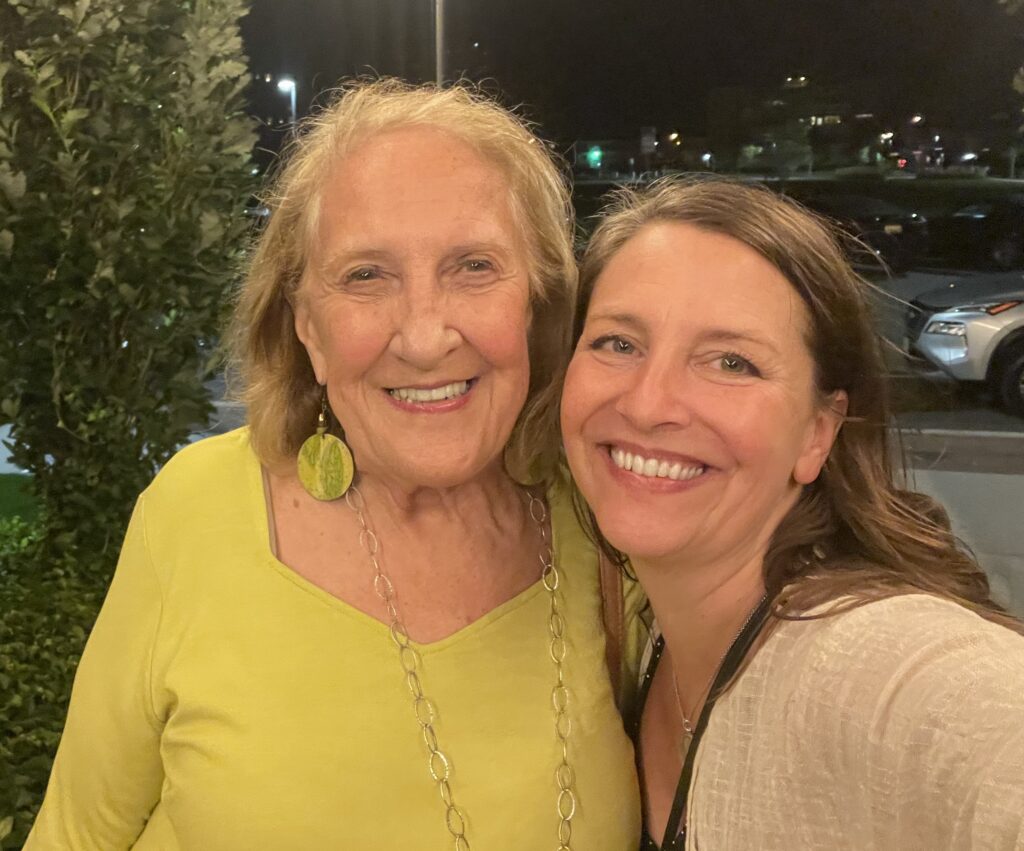
“I am so fortunate to be able to call Kathy Hurley my wonderful mentor and dear friend,” says Jennifer L. Ferrari, Ed.D., CEO & President, Education Research & Development Institute (ERDI). “She generously shares the gift of time with so many, and her investment in me has had a profound impact on me both professionally and personally …. I aspire to be like Kathy and intentionally strive to return the gift I’ve received by actively offering mentorship and friendship to others.”
Who did you consider an early mentors and how did they change the course of your career?
When I moved into the publishing world, most of the executive level leaders were men so most of my early mentors were men. Early in my career, I served on a Board with a gentleman named Ross Sacket. He was president of CBS Publishing, and he was just a very unique guy and he took a real interest in me and took me under his wing. He encouraged me to start an industry newsletter and taught me the ropes around how to do that and distribute it — mind you — these were print publications at that time — electronic distribution channels had not been developed yet! He taught me a lot about the industry and his door was always open if I needed help. He also helped me get involved with NSSEA, which was the forerunner to the Education Market Association. I also had some really great mentors at IBM — Tom Greaves, who is still very active in our industry, Jim Dezell, who sadly passed away in 1999 and others.
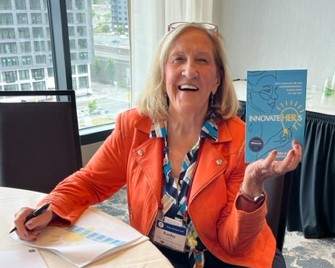
Why is mentorship so important to you?
Great mentors can make all the difference in your success. If you are willing to learn from someone who is willing to share their time and expertise with you, then make the most of that relationship. Choose your mentors wisely though — does this person share your values, do they want the best for you — and are you committed to learning from them? Again, if they are willing to share their time and insights, then you must be willing to receive that and then act on it.
What do you like best about working in the education market?
Our market is full of people who are committed to a common purpose and that is improving education for students and the people who commit themselves to serving students — administrators, teachers, supplemental staff, operational staff, etc. Because we share this common purpose, we are tight-knit, purpose-driven network on both sides of the relationship — vendor side and educator side. I have become close personal friends with executives from multiple companies as well as with superintendents, chief state school officers, teachers, and administrators.
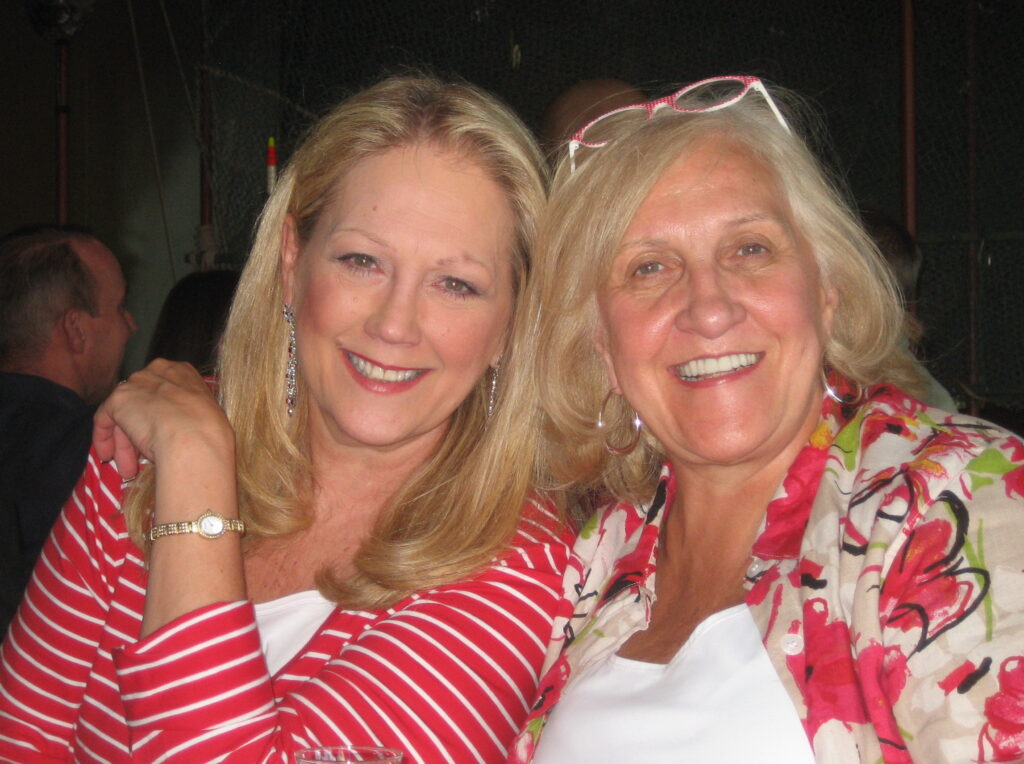
“Kathy is so very deserving of this award which recognizes significant and outstanding service in the industry over the years,” says Vicki Smith Bigham, former edtech consultant. “That is the very definition of who Kathy Hurley is — a true icon in the education industry. She is the most or among the most savvy of marketers, but she is equally known for the unending mentorship she has provided to so many industry leaders and aspiring leaders. Endlessly energetic, incredibly bright, and equally fun. No wonder many of us who are also gifted to call her our friend refer to her as the Hurleycane!”
What are you most proud of?
I think I’m most proud of the reputation that I’ve established in the industry and the legacy that I hope to leave. A reputation built on strong relationships and friendships as well as a few award-winning products that I helped to develop along the way — but the relationships, by far, are my most cherished accomplishment.
What advice do you have for improving opportunities for women and girls?
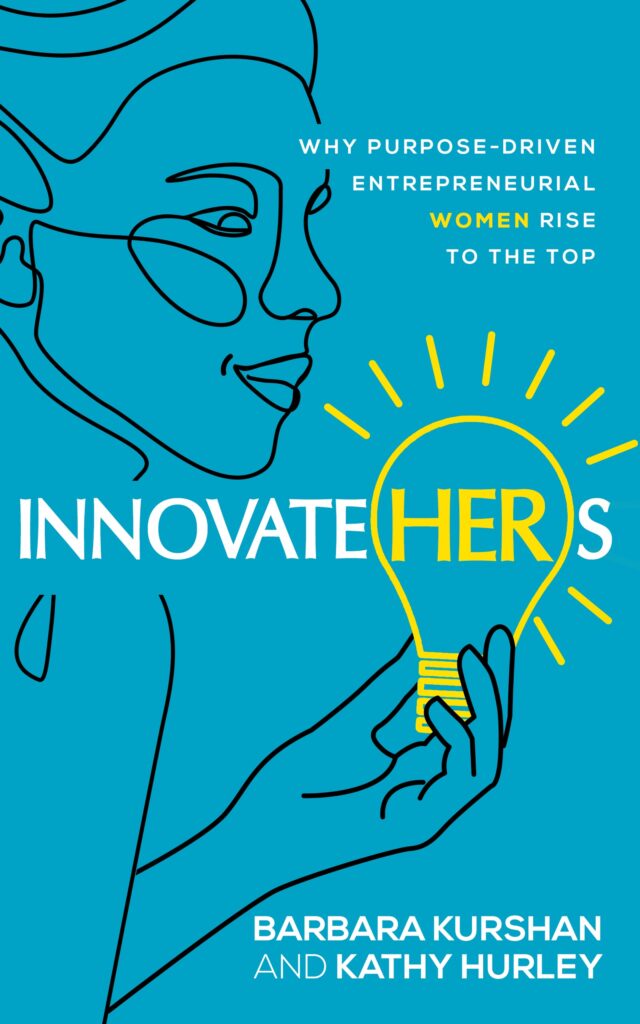
I co-authored two books on women and leadership, so I’ll share three observations:
1. Women need to be more trusting and helpful to other women. There’s a reason that it’s called “The Good Ole Boys network” and that is because, in general, men tend to help other men and as women, we need to be better about supporting each other.
2. A big A-HA moment that we had when writing InnovateHERs is that a lot women grapple with Imposter Syndrome. They grapple with it for different reasons, but building confidence and embracing assertiveness to lead is a must for any leader, but especially for women leaders.
3. In my first book, Real Women, Real Leaders, the research showed that women are natural leaders — much more so than men — however, they struggle in two areas —financial expertise and strategic planning. Mastering those two domains is essential to leading large, complex organizations, so a great focus on those two areas for women is critical to moving to into leadership roles.
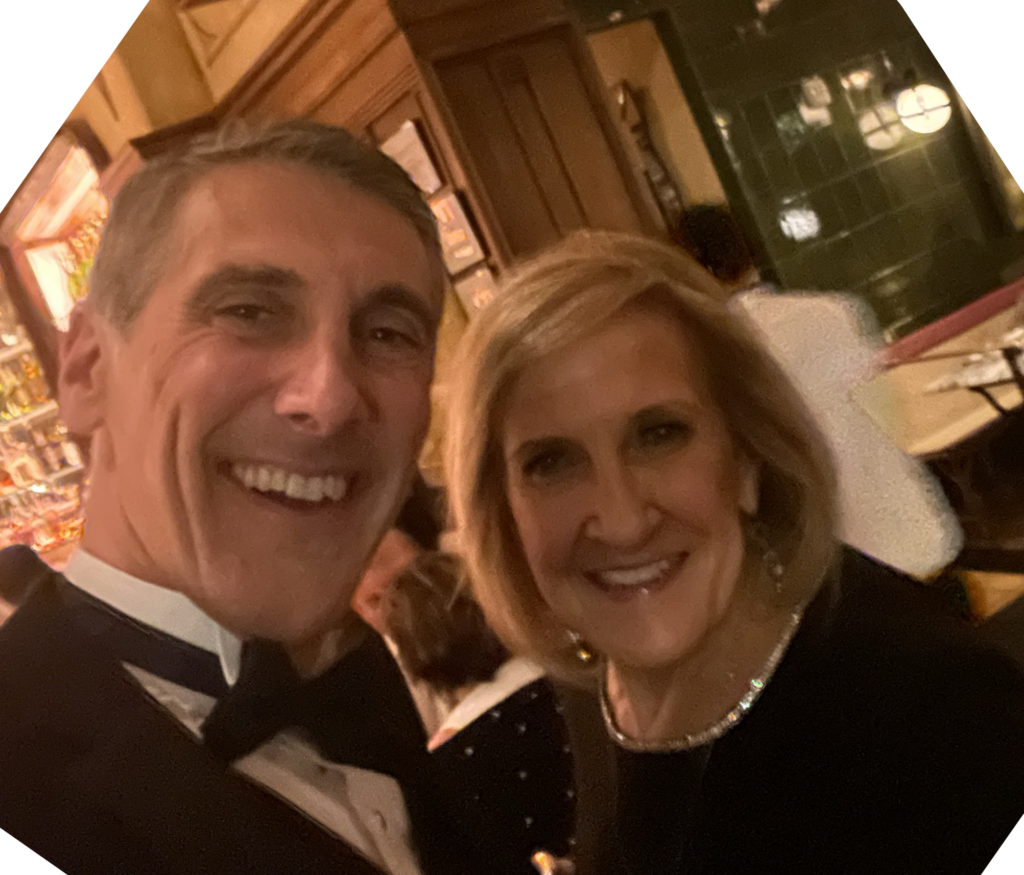
“When Kathy and I began working together, I was grateful for all the industry advice and wisdom she shared,” says Berj Akian, CEO of ClassLink. “She truly does know everyone and everything in edtech. Then, the creativity began. We started to come up with ideas to do together for the benefit of the industry — she’s so incredibly talented at this type of work. It might be nice to think that my experience with Kathy is preciously unique, but it’s not. She’s the amazing one in our duo, and she has this kind of relationship with many others. EdTech is a magical industry for developing these kinds of life-long relationships. I’m blessed to be among the many having such a relationship with Kathy.”
What do you see as the most important trends impacting the future of education?
Right now everything is about Artificial Intelligence and every sector of society is going to leverage AI, and this is especially true of education — from the operational side to the edtech instructional side. LAUSD just rolled out an AI-communication tool that they named Ed. “Ed’s” job is to be a kind of advisor to new students, so “he” is responsible for communicating with parents about their child’s attendance, grades, academic scores on tests and quizzes. Companies are also using AI for everything from differentiated instruction to back-end programming to create more efficient system. One huge trend that I would put in the negative category is the level of attrition for both teachers and administrators. Teachers leaving the education field has been a problem for the last decade, but we are now seeing a huge drop-off in administrators, especially superintendents — 25% retire or left education last year. We must take steps now to make the education field a more attractive, impactful career path. Finally, another big trend is emphasis on college and career paths — and giving kids the tools they need to be successful on either path they choose.
How has your involvement with EDmarket impacted your career?
I first became involved with EDmarket when it was an organization for dealer organizations, and honestly it was through that involvement that I learned channel strategy, which was great! Since then, the organization has really transformed and expanded and now represents a wide range of companies from furniture to ed spaces to transportation. I’ve learned so much about the industry, and just how diverse the industry is by being a part of EDmarket.
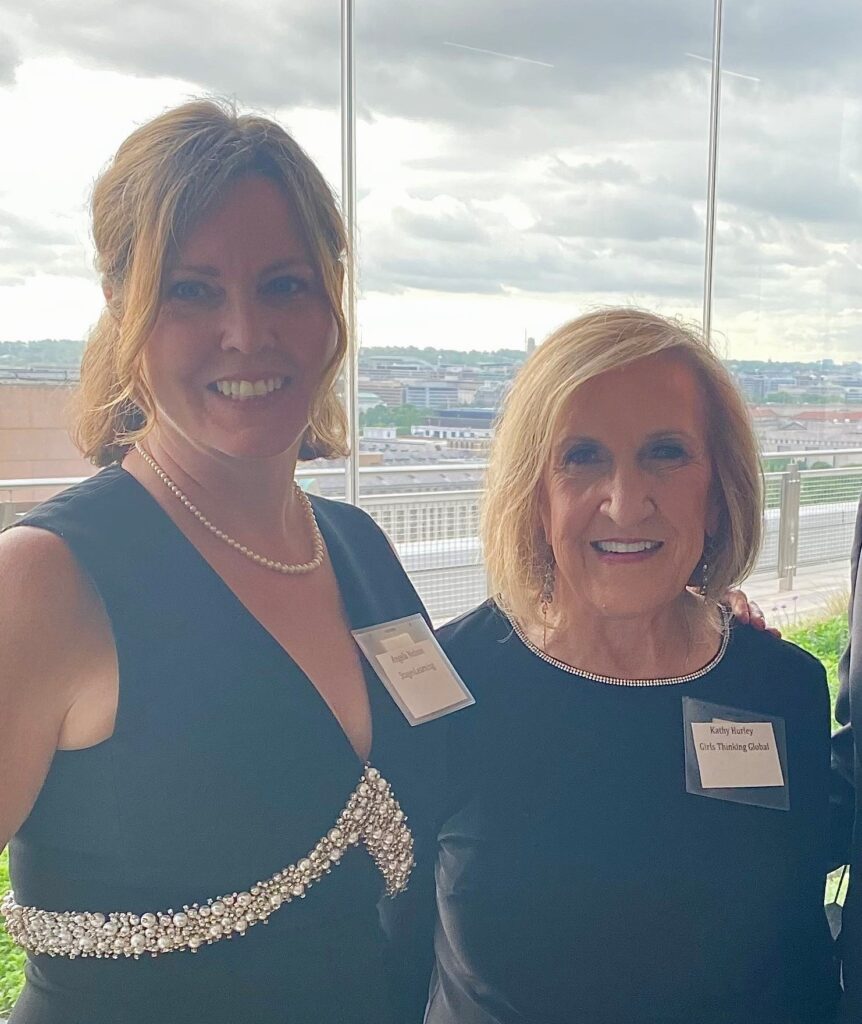
“Kathy has been an invaluable mentor, guiding me with insights that have profoundly influenced my path” says Angela Nelson, President of Stages Learning. “Beyond her mentorship, Kathy holds a special place in my heart as a cherished friend. Her dedication to endeavors such as Girls Thinking Global mirrors her deep commitment to bettering the world around her. I am grateful not just for the indelible mark she’s made on the industry, but for the friendship, support, and warmth she’s graciously extended to me.”
What advice would you give others wanting to make a difference in education?
Get involved — join organizations, serve on boards, committees, policy groups. READ the newsletters from the various associations — those help you find out what is really happening at the grassroots level. And, finally, find a few mentors and learn from them!
What is one fun fact we should know about you?
Not sure where to begin with this one, but as a child, I went to Catholic school, so when I was in 4th grade, I announced to everyone that I wanted to be a nun. No one bought it!

